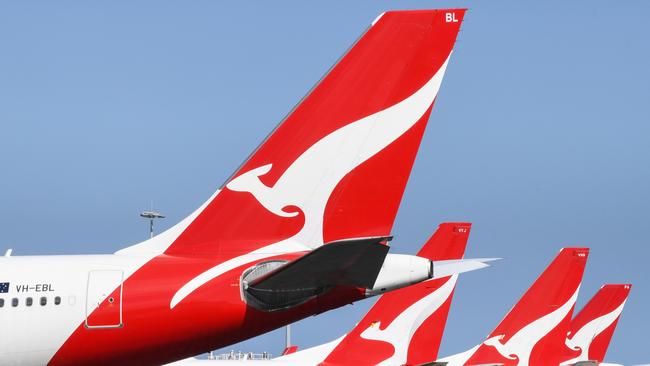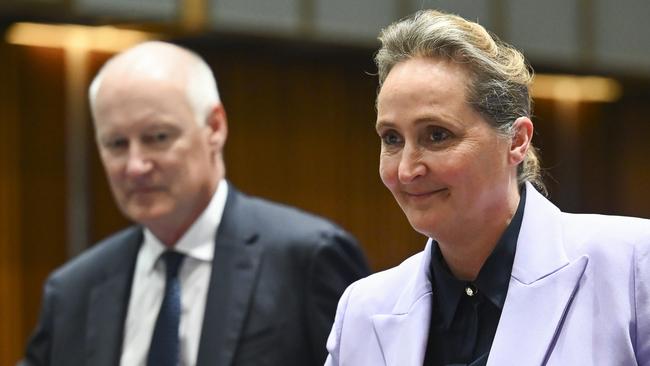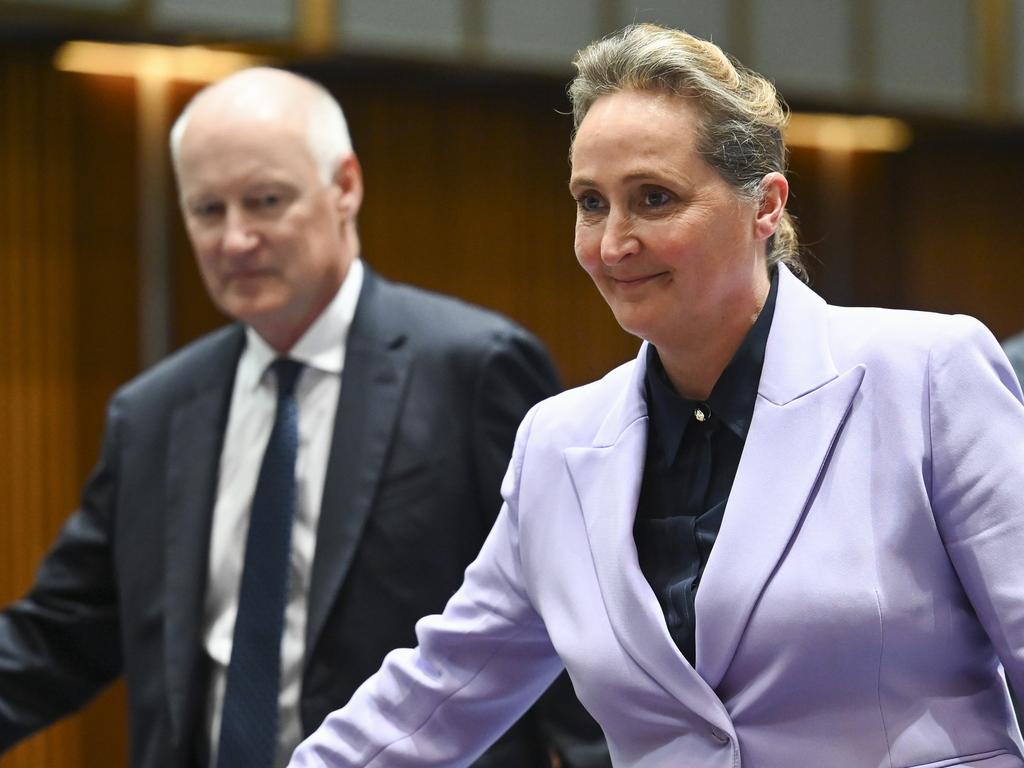Qantas controversies fail to deter frequent flyers packing out red tail planes
Qantas’ brand might be tarnished but travellers are showing no sign of giving up their frequent flyer points and abandoning the flying kangaroo.

Business
Don't miss out on the headlines from Business. Followed categories will be added to My News.
For all of the outrage and controversy engulfing Qantas, customers are still lining up to book seats on the flying kangaroo.
The airline’s own figures suggested about four million people are flying with Qantas or Jetstar over the school holidays and footy finals period, up from 3.7 million at the same time last year.
Webjet data also showed travel continued to attract enormous interest, with the site recording a 136 per cent increase in bookings for the 2024 northern summer, compared to the same time last year.
Although many of those bookings would be with other airlines, federal government data suggested Qantas was still the leading choice for a flight in or out of the country.
Bureau of Infrastructure, Transport and Regional Economics data showed Qantas and Jetstar carried almost 30 per cent of all travellers in and out of Australia in April, three times their closest competitor, Singapore Airlines, with 9.5 per cent, followed by Air New Zealand on 7.8 per cent.
Financial analysts noted the “robust travel demand” in their response to a Qantas market update this week, predicting it would support higher fares considered inevitable as fuel skyrocketed.

For now Qantas has pledged to absorb rising costs to spare customers even more expense, as the airline strives to rebuild trust and iron out “pain points”.
Editor-in-chief of Executive Traveller David Flynn said winning back that trust would be a marathon for Qantas rather than a sprint.
Given the size and influence of its juggernaut frequent flyer program, it was perhaps not surprising that a major irritant for the 15-million members was the first issue to be addressed.
Flynn said the automatic cancellation of frequent flyer points when the holder of those points died, was being addressed.
From October, a spouse or family member can request their loved one’s points be transferred to their own account within a 12-month period. “It’s a good early example of how under Vanessa Hudson’s leadership, the airline is taking a good look at legacy policies and this one certainly causes the airline more pain than gain, Flynn said.
Ian Jarratt from the Queensland Consumers Association also welcomed the policy change, and hoped others would soon follow.
He said his association would like to see the 18-month expiry date for untouched frequent flyer accounts extended or axed altogether, and a reduction in the cost of making changes to bookings.
The Australian Services Union hoped call centres would be next on Ms Hudson’s to-do list, after the CEO indicated she would examine the feasibility of returning some services onshore.
ASU Victorian private sector branch secretary Imogen Sturni said bringing jobs back to Australia as “permanent jobs at Qantas” would go a long way to restoring the belief the airline had the national interest at heart.
“Qantas management have rightly been dragged over the coals for breaching trust with the community,” Ms Sturni said. “At the heart of these issues are the job cuts and offshoring of customer service and call centre roles which have had huge negative impacts on workers and customers.”
While full planes and strong bookings buoyed the airline, they were not enough to drown out calls for Qantas chairman Richard Goyder to go.
Pilots, licensed engineers and the Transport Workers Union were among those demanding his resignation, along with the Australian Shareholders Association.
ASA chief executive Rachel Waterhouse said it was clear retail investors who held 10 per cent of all Qantas shares did not support Mr Goyder.
She said as chair, Mr Goyder had failed to ensure appropriate oversight of former chief executive Alan Joyce, who was able to sell 90 per cent of his shares before it became public Qantas was being investigated for allegedly selling tickets on already cancelled flights.
Originally published as Qantas controversies fail to deter frequent flyers packing out red tail planes





